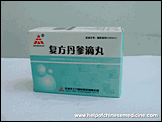Shenyi Center of Chinese medicine has a variety of Chinese medicines for hypertension. click here
- Chinese Medicine for cardiovascular diseases and heart
- Chinese Medicine for gastro-intestinal disorders (poor appetite, indigestion, gastritis, diarrhea)
- Chinese Medicine for men (prostatitis, impotence etc.)
- Chinese Medicine for women (gynecological conditions, pre-menstrual syndrome, infertility)
- Chinese Medicine for liver syndromes (fatty liver, hepatitis)
- Chinese Medicine skin diseases (swelling, eczema, psoriasis)
- Chinese Medicine for asthma, bronchitis, chronic coughs
- Chinese Medicine for rheumatism, arthritis, osteoarthritis
- Chinese Medicine for hypertension
- Chinese Medicine for allergies
- Chinese Medicine for common cold and flu, sore throat
- Chinese Medicine for pain relieve
- Chinese Medicine for fatigue syndrome
- Chinese Medicine for weight loss
Known in ancient Chinese medicine for generations, this important medicine is widely used for the treatment of cardiovascular diseases including chest pain, heart attacks, ischemic stroke and myocarditis, inflammation of heart, stagnation of blood.
Providing blood circulation improvement, Danshen pills also have immune enhancing properties.
Take it daily to have a strong healthy heart and normal blood flow at any age.
Dosage: To be sucked or taken orally, 10 pills each time, 3 times a day
Contains 150pills
Manufacturer: Tianjin Tasly Pharmaceutical Co., Ltd.
Read more...
[Analysis on clinical treatment in hypertension by traditional Chinese medicine for 10 years in Beijing]
Zou ZD, Liu N, Guo P, Guo LY, Sun Y, Shi J, Wang L.
College of Traditional Chinese Medicine, Capital Medicinal University, Beijing 100069, China.
To make a retrospective study of clinical treatment in hypertension by traditional Chinese medicine for 10 years in Beijing, and to mainly analyze in three facets: the study on total regularity of using Chinese herbal medicine, the study on regularity of application, and the study on differentiation of symptoms and signs. RESULT: (1) Total regularity of using Chinese herbal medicine: They are tonic herbs, expelling phlegm and stopping winding herbs, heat-clearing herbs, blood-activating and stasis-resolving herbs, damp-clearing herbs in turn. The frequently used herbs were gouteng, niuxi, tianma, fuling, baishao, zexie, chuanxiong, and so on. (2) The study on regularity of application: The 6 kinds of herbs above were abide by the total regularity and the frequently used herbs were gouteng, niuxi, fuling, tianma, chuanxiong, baishao, zexie, and so on. (3) It was showed that the common syndromes of hypertension and herbs were: The herbs such as gouteng, niuxi, baishao, tianma, chuanxiong, juhua were frequently used in liver yang ascending syndrome. Herbs such as gouqizi, niuxi, shanyao, shudihuang, fuling, mudanpi, were frequently used in symptoms of yin deficiency of liver and kidney. Herbs such as huangqin, xiakucao, gouteng, zhizi, longdancao, juhua were frequently used in syndrome of flarming liver-fire. Herbs such as fuling, banxia, jupi, baizhu, tianma, gancao were frequently used in the stagnation of phlegm. Herbs such as tianma, gouteng, baishao, shijiuming, banxia were frequently used in up-stirring of liver. Herbs such as chuanxiong, chishao, honghua, danshen, sanqi were frequently used in syndrome of blood stasis in the collateral of the brain. Herbs such as shanzhuyu, shudi, fuling, rougui, fuzi, niuxi were frequently used in both-yini-and-yang-deficiency.
Clinical and experimental study of effect of Raondix Salviae Militiorrhiza and other blood-activating and stasis-eliminating Chinese herbs on hemodynamics of portal hypertension.
Yao XX, Cui DL, Sun YF, Li XT.
Department of Internal Medicine, Second Affiliated Hospital,Hebei Medical University, Shijiazhang 050000, Hebei Province, China.
AIM:To study the effects of Radix Salviae Militiorrhiza (RSM), other blood-activating and stasis-eliminating Chinese herbs on hemodynamics of portal hypertension.METHODS:Portal pressure of cirrhotic dogs after chronic common bile duct ligation was measured directly; portal blood flow in patients with liver cirrhosis were detected by ultrasound Doppler.RESULTS:After administration of RSM and Radix Angelicae Sinensis (RAS) by intravenous infusion in cirrhosis dogs, the portal venous pressure (Ppv), wedge hepatic venous pressure (WHVP), hepatic venous pressure gradient (HVPG), were significantly decreased (P < 0.05-0.01), but the mean arterial pressure (MAP), and the heart rate (HR) remained unchanged. When nifedipine was used, Ppv, WHVP, MAP and HR were significantly decreased (P < 0.05), and the MVPG unchanged (P > 0.05). After administration of RSM, RSM+nifedipine and RSM+Hirudin+Nifedpin for 10-12 weeks, the diameter of portal vein (Dpv), spleen vein (Dsv), the portal venous flow (Qpv) and splenic venous flow (Qsv) in patients with hepatic cirrhosis were significantly lowered (P < 0.05-0.01), and the effect of RAS was weaker.CONCLUSIONS: The efficacy of decreasing Ppv by Chinese herbs RSM, RAS, etc. as compared with nifedipine, demonstrated that the Chinese herbs were slower in action than that of nifedipine, but more long-lasting and without side effects. Hence, long-term administration of Chinese herbs, would be more beneficial.


